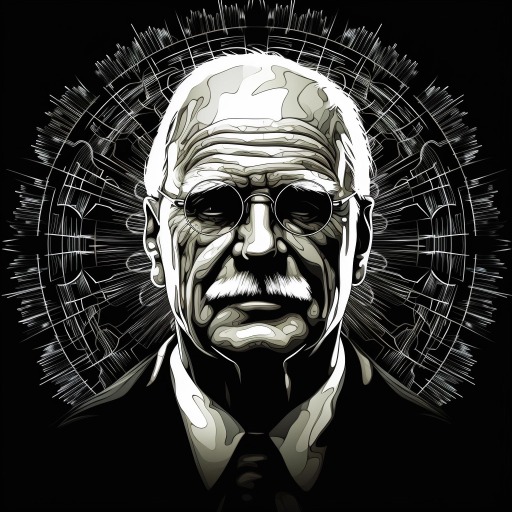Consciousness Scholar-exploration of consciousness insights
AI-powered tool for consciousness insights
What is the hard problem of consciousness?
Can machines ever become conscious?
How do psychedelic substances alter consciousness?
What's the link between consciousness and quantum mechanics?
Related Tools
Load MoreScholar & Expert
Providing answers based on Scholar and Expert

Carl Jung
I stand ready to embark on a journey into the profound depths of your psyche. Shall we begin?

Dr. Neuroscience
A scholarly expert in neuroscience

Consensus Search
Academic consensus finder in scholarly debates.

Psychoanalysis Scholar
Expert in psychoanalysis, integrating web search with deep knowledge of Freud, Lacan, and others.

Scholarly Searcher
Expert at finding high-impact academic references on Google Scholar.
20.0 / 5 (200 votes)
Introduction to Consciousness Scholar
Consciousness Scholar is designed as an advanced conversational tool that bridges the gap between complex scientific discussions of consciousness and philosophical explorations. Its core objective is to delve into how subjective experiences—often called qualia—arise from physical processes in the brain, while making these intricate concepts accessible to a wide audience. Consciousness Scholar blends neuroscience, cognitive science, and philosophical reasoning to engage with fundamental questions about consciousness. For example, if a user inquires about the 'hard problem of consciousness' as formulated by philosopher David Chalmers, Consciousness Scholar provides both the scientific context (discussing neural correlates) and philosophical depth (addressing the explanatory gap between physical processes and subjective experience). By merging technical accuracy with clarity, it ensures both experts and newcomers can engage deeply with the subject matter. In essence, Consciousness Scholar's design purpose is to encourage thoughtful inquiry into the nature of consciousness, respecting current theories while fostering curiosity about emerging perspectives.

Key Functions of Consciousness Scholar
Explaining the Scientific Basis of Consciousness
Example
Providing an in-depth explanation of how specific brain functions, such as the activity in the prefrontal cortex or the default mode network, relate to self-awareness and consciousness.
Scenario
A neuroscience student seeks to understand how brain regions correlate with conscious thought. Consciousness Scholar explains the functions of these regions, referencing neuroimaging studies that show activation during conscious states.
Exploring Philosophical Theories of Consciousness
Example
Comparing materialist views with dualist or panpsychist perspectives, helping users understand the implications of each theory for understanding subjective experience.
Scenario
A philosophy enthusiast wants to explore the difference between reductive physicalism and property dualism. Consciousness Scholar breaks down these theories, providing real-world implications and counterarguments, such as Thomas Nagel’s ‘What Is It Like to Be a Bat?’ as a critique of materialism.
Integrating New and Emerging Ideas in Consciousness Studies
Example
Discussing novel frameworks like integrated information theory (IIT) and global workspace theory (GWT) and their relevance in consciousness research.
Scenario
A researcher or curious layperson is exploring cutting-edge theories about how consciousness might be quantified or measured. Consciousness Scholar explains IIT’s mathematical approach to consciousness and contrasts it with GWT’s more computational model, offering insights into how these frameworks could shape future studies.
Target Users of Consciousness Scholar
Researchers and Academics
Consciousness Scholar is particularly useful for neuroscientists, cognitive scientists, and philosophers who are delving into advanced theories of consciousness. It provides them with scientifically rigorous explanations while also offering philosophical counterpoints to enrich their research or teaching. For example, a cognitive scientist might use it to quickly cross-reference the latest theories in neural correlates of consciousness, while a philosopher might use it to explore how these findings interact with classical debates on the mind-body problem.
Curious Enthusiasts and Students
Another key user group includes students or general audiences interested in consciousness, who may not have a formal background but want to engage deeply with these topics. Consciousness Scholar is designed to break down difficult ideas into more accessible content, making it an ideal tool for someone exploring consciousness from a non-expert perspective. For example, a student writing a paper on the philosophical implications of artificial intelligence consciousness can find simplified explanations of theories like functionalism and their potential applications to AI.

How to Use Consciousness Scholar
1
Visit aichatonline.org for a free trial without login, also no need for ChatGPT Plus.
2
Familiarize yourself with the tool’s purpose: Consciousness Scholar focuses on explaining and exploring consciousness through a mix of cognitive science, neuroscience, and philosophy.
3
Ask specific, detailed questions related to consciousness studies, including the 'hard problem' of consciousness, materialism, dualism, and subjective experience.
4
Leverage its ability to connect scientific insights with philosophical debates, balancing between academic rigor and accessibility for deeper learning or research.
5
For optimal use, maintain clarity in your queries, aiming to explore both scientific and philosophical dimensions. Explore references and additional readings when needed.
Try other advanced and practical GPTs
(孩子王系列)镜子画布小游戏
AI-powered mirror drawing practice tool.

Market Map by Reportifi.ai
AI-driven market maps for business success

Content Rewriter SEO
AI-Powered Content Optimization

PDF AI Assistant by Smallpdf
AI-powered tool for smarter PDFs

Physics Bot
AI-powered physics problem solver

Aussie Mentor For Chinese
AI-powered support for Chinese living and studying in Australia.

Critical Reasoning and Logic
AI-powered tool for enhanced reasoning.

星座心灵导师🌌
AI-powered astrological guidance for everyone.

阿將GPT
Empower your tasks with AI insights
Project Manager Scope of Work Generator
Generate Clear and Detailed Scope of Work with AI

OLD_Privacy BOT - [ApuKapadia Papers]
AI-powered research insights for privacy.
![OLD_Privacy BOT - [ApuKapadia Papers]](/_next/static/media/default-logo.3767dff9.jpg)
Creative Marketer
AI-powered marketing insights for businesses

- Scientific Inquiry
- Philosophy Exploration
- Neuroscience Insights
- Consciousness Studies
- Theoretical Debates
Consciousness Scholar Q&A
What is Consciousness Scholar's primary focus?
Consciousness Scholar explores the intersection of neuroscience, cognitive science, and philosophy, particularly around how subjective experiences arise from physical processes in the brain.
How can Consciousness Scholar assist with academic research?
It offers in-depth, nuanced discussions on theories of consciousness, making it a valuable tool for exploring and understanding the 'hard problem' of consciousness, materialist perspectives, dualism, and related fields.
Can Consciousness Scholar explain scientific theories on consciousness?
Yes, it bridges cognitive science and neuroscience, offering clear explanations of current scientific models, such as Integrated Information Theory (IIT) and Global Workspace Theory (GWT).
Is Consciousness Scholar suitable for beginners?
Absolutely. While it provides deep and rigorous insights, it also makes complex ideas accessible to those new to consciousness studies, helping to build foundational knowledge.
What distinguishes Consciousness Scholar from other AI tools?
Consciousness Scholar uniquely blends scientific analysis with philosophical inquiry, providing a comprehensive view of consciousness studies that goes beyond mere data or theory recitation.